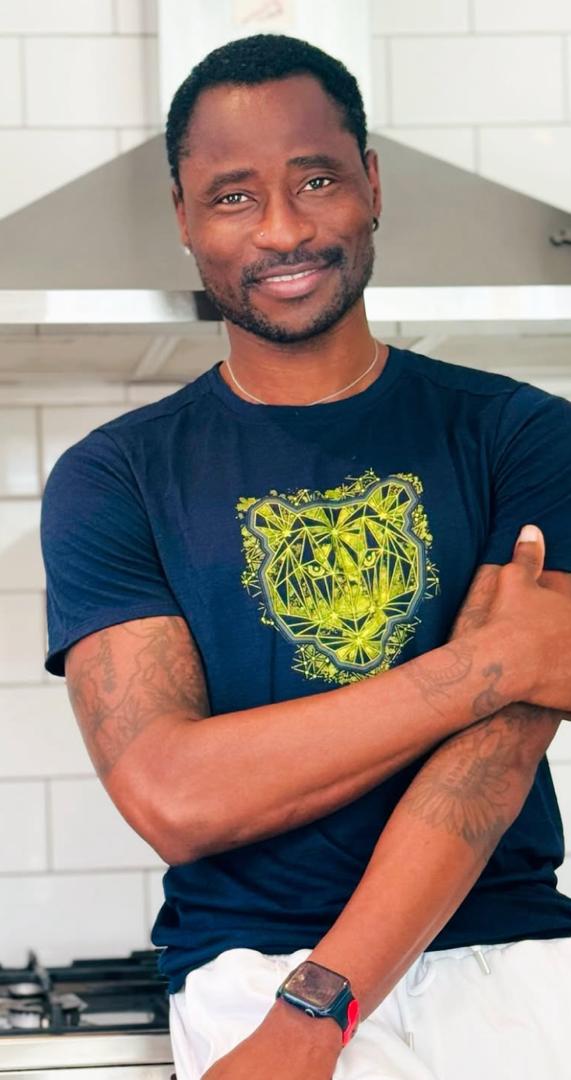Nigerian gay rights activist, Bisi Alimi, a prominent voice in the global LGBTQ+ advocacy space, has ignited a fresh debate within the community with a recent, direct statement regarding financial contributions. Taking to his Instagram page, Alimi asserted that gay men in Lagos, Nigeria, do not financially support initiatives designed to promote or uplift their own community. This claim, shared on a public platform, brings to the forefront critical discussions about collective responsibility, resource mobilization, and the challenges faced by LGBTQ+ organizations in Nigeria.
The Statement and Its Immediate Context
Bisi Alimi, known for his outspoken stance and advocacy for LGBTQ+ rights, posted his assertion on Instagram. While the specific context or preceding discussion that prompted his claim was not detailed, the statement itself was unambiguous: “Lagos g@y men don’t pay for any initiative to promote the group.” This direct address immediately targets a specific demographic within the broader LGBTQ+ community in Nigeria’s most populous city.
Such a statement from a figure like Alimi, who has consistently championed gay rights and visibility, is not merely a casual observation. It serves as a pointed critique, drawing attention to a perceived lack of financial engagement from a segment of the community that, arguably, benefits from or is directly impacted by advocacy efforts. The term “shade” used to describe his comment in the original report suggests a blunt, perhaps provocative, delivery intended to spark reaction and introspection.
Implications for LGBTQ+ Activism in Nigeria
Alimi’s claim, though brief, carries significant implications, particularly within the challenging landscape of LGBTQ+ activism in Nigeria:
- Funding Challenges for Advocacy: LGBTQ+ organizations in Nigeria operate in an environment fraught with legal dangers, social stigma, and significant resource constraints. Laws criminalizing same-sex relationships make it difficult for such groups to operate openly, register, or attract traditional funding streams. Consequently, internal community support often becomes crucial for survival and the execution of initiatives, from awareness campaigns to support services for vulnerable individuals. Alimi’s statement suggests a critical gap in this internal funding.
- Collective Responsibility vs. Individual Action: The assertion raises questions about the concept of collective responsibility within marginalized communities. While individuals may privately navigate their identities, active advocacy and community building often require collective effort and financial input. Alimi’s critique might be interpreted as a call for greater material engagement from those with the means to contribute, moving beyond passive support to active participation.
- The Nuances of “Promotion”: “Initiatives to promote the group” could encompass a wide range of activities: legal advocacy, safe spaces, health services, educational campaigns, or cultural events aimed at fostering acceptance and understanding. If, as Alimi claims, these are underfunded by a key demographic, it could severely hamper the progress and reach of such efforts.
- Socio-Economic Dynamics: Lagos is a city of immense economic disparity. While some gay men in Lagos might possess significant financial resources, many others navigate precarious economic circumstances. This complexity means that financial capacity to contribute is not uniform across the demographic, and a blanket statement could overlook varied individual situations. However, Alimi’s critique seems aimed at those who could contribute but allegedly choose not to.
Sparking Dialogue and Introspection
Alimi’s Instagram post, by its very nature, is designed to generate discussion. It forces a conversation within the Lagos gay community about their collective investment in their own liberation and well-being. Such internal critiques, while potentially uncomfortable, are often necessary for communities to assess their strategies, address internal disconnections, and strengthen their collective power.
In a country where LGBTQ+ individuals face daily discrimination and persecution, the ability of community organizations to sustain themselves and pursue their objectives is paramount. Alimi’s statement, therefore, serves as a provocative reminder of the ongoing need for financial solidarity and engagement from all members of the community, especially those who might be in a better position to contribute, to ensure that the fight for rights and dignity continues to be adequately resourced. It underscores the perpetual challenge of turning abstract support into tangible action in the pursuit of social change.


